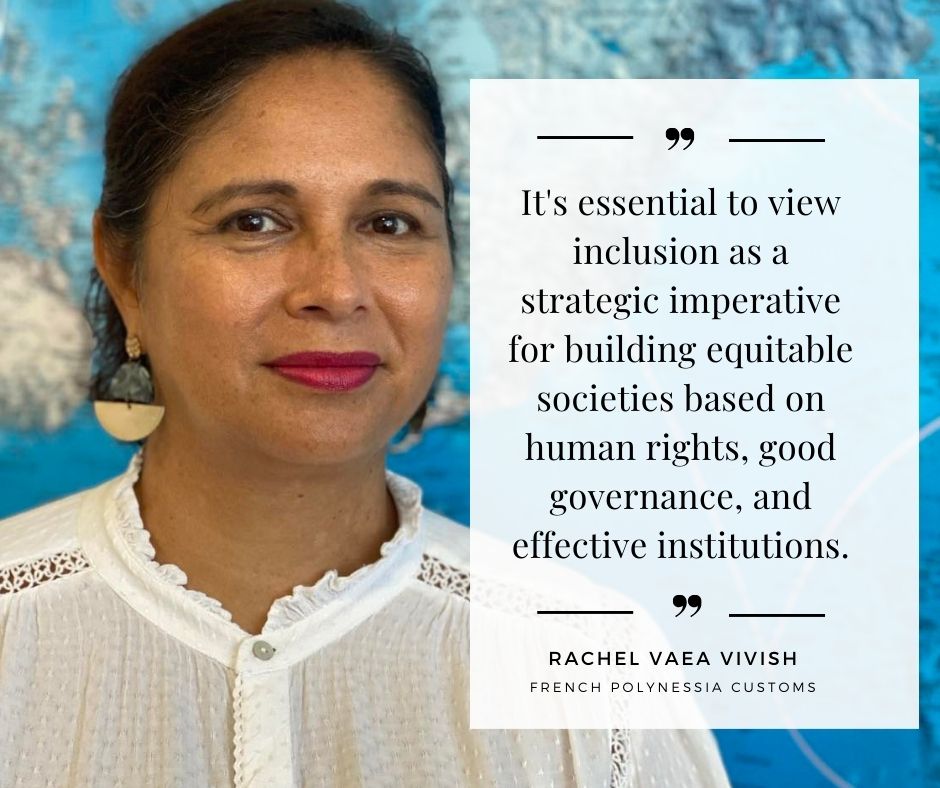May 02, 2024: In a field traditionally dominated by men, women are increasingly taking on leadership roles in customs administrations across Oceania. These trailblazing women are not only breaking glass ceilings but also spearheading efforts to create more inclusive and diverse customs administrations. In our Q&A series, we feature women who are making significant contributions to their respective customs administrations. This week, we are honored to feature Madam Vaea Vivish from French Polynesia Customs.
- Can you share your journey with French Polynesia Customs?
I began my career with the customs administration in 1993 at the age of 20, inspired by my father and brother who were customs officers. Over the years, I’ve held various positions, including verification officer, assistant office manager, and assistant to the divisional head. These roles have provided me with a comprehensive understanding of customs services, both operationally and administratively. Additionally, I’ve gained valuable professional experience in France, particularly in the field of energy products, and through a secondment to the General Directorate of Overseas Territories in Paris. Today, as the Manager for Activity and Performance Monitoring at the Regional Customs Directorate of French Polynesia, my focus is on enhancing our department’s resources and collective performance.
- What do you believe are the biggest challenges facing women in leadership roles in Customs?
Women in leadership roles face several challenges, including establishing themselves in a predominantly male environment, securing stimulating positions that align with their aspirations, and combating gender bias. Overcoming these challenges requires resilience, determination, and a supportive organisational culture that values diversity and inclusion.
- How do you promote diversity and inclusion within your organisation?
Promoting diversity and inclusion within our organisation involves several daily practices. Firstly, through internal communication, we raise awareness among our officers about the importance of diversity and inclusion through messages and concrete actions. Our intranet regularly features news about initiatives supporting diversity and inclusion, which helps sensitise our agents to these issues. Secondly, we support professional career development by promoting continuing. Lastly, we implement professional practices that facilitate work-life balance, such as flexible scheduling, telecommuting, and adapted work organisation.
- In your opinion, what strategies are most effective in inspiring inclusion in the Pacific region?
In the Pacific region, implementing common regional strategies inspired by the UN Sustainable Development Goals is crucial for fostering inclusion. It’s essential to view inclusion as a strategic imperative for building equitable societies based on human rights, good governance, and effective institutions. Education and culture are fundamental pillars upon which we can develop strategies that encourage inclusion and diversity in the Pacific.
- What advice would you give to young women aspiring to leadership positions in Customs or related fields?
My advice to young women aspiring to leadership positions is to stay focused on their goals and work diligently to achieve them. The landscape is evolving, and there’s a growing emphasis on promoting diversity and gender equality in the workplace. It’s essential to leverage the support measures and programs available, such as the Talented Women Program and Prépa Talents Program, which are accessible to both current agents and students aspiring to join the customs administration.
ENDS

